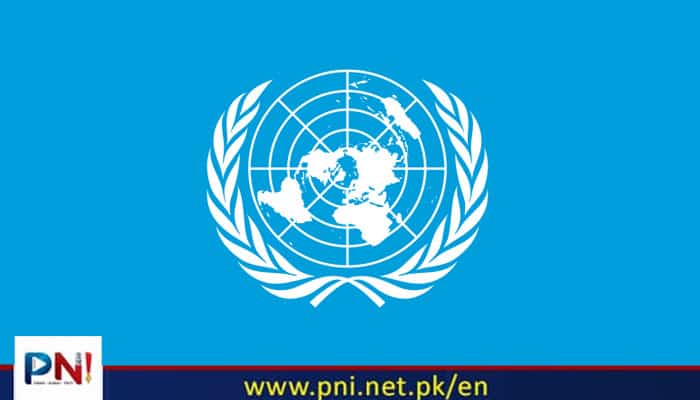UNITED NATIONS, Jul 01 (APP): Escalating Israeli military attacks in northern Gaza have now forced an estimated 84,000 people to flee the eastern Gaza City in a matter of days, while also cutting off access to a key aid distribution hub, UN humanitarian officials Monday.
The exodus from Gaza City’s eastern Shujaiya district follows days of reported intense bombardment by the Israeli military, whose tanks have been sighted “around 100” metres east of Salah El Din road, the main north-south axis.
“People in this area tell us about the looming famine, and how people are eating tree leaves or only have flour to survive on,” said the UN aid agency assisting Palestine refugees, UNRWA.
In a written exchange with UN News, a media website, Senior Communications Officer Louise Wateridge described the destruction in affected areas, which spans some seven square kilometres – as “apocalyptic – most people have lost their homes, either completely or partially, and have to flee with very few belongings; essentially what they can carry in their hands. Many people have lost members of their families”.
“Pregnant women and persons with disabilities are among the most vulnerable as they cannot easily move during forced displacements, as well as huge concern for thousands of unaccompanied and separated children,” Ms. Wateridge added.
The violence has also prevented the agency from accessing its distribution centre in Gaza city’s Tuffah neighbourhood, “due to its proximity to the front line”.
Of the approximately 84,000 people currently displaced, some 10,600 have found shelter in a total of 27 locations including UNRWA schools, where pop-up health points are available and under increasing pressure to cope with demand.
Others are staying in government schools, buildings and open areas, the UN agency spokesperson continued.
To help those forcibly uprooted by the latest escalation in the conflict, sparked nine months ago by Hamas-led attacks and hostage-taking in multiple locations across southern Israel, the UN agency has already distributed water, food parcels and flour.
“The distribution of nappies, mattresses and tarpaulins is also planned today,” said Ms. Wateridge, who noted that some fuel for the agency’s needs had been delivered on Sunday via the fence road separating Gaza from Israel.
A limited quantity of diesel had also entered the enclave to run hospital generators and desalination plants but needs remain huge, humanitarians have warned repeatedly.
According to the latest update from the UN aid coordination office, OCHA, access constraints, insecurity and ongoing hostilities have continued to “significantly impede” the delivery of essential humanitarian assistance and services across Gaza.
“This includes critical food and nutrition aid, medical care, shelter support, and water, sanitation, and hygiene services for hundreds of thousands of people in need,” OCHA said on Friday, noting that the Israeli authorities had facilitated fewer than half of the more than 100 planned humanitarian assistance missions, coordinated to reach northern Gaza this month.
“The rest were either impeded, denied access, or cancelled due to logistical, operational or security reasons.”
OCHA also noted that a military operation in the area of al-Mawasi west of Khan Younis resulted in “scores of casualties” arriving at a nearby field hospital and the displacement of at least 5,000 people, according to partners on the ground.
Amid the ongoing Israeli military operation in Rafah beginning last month, southern Gaza “now resemble the apocalyptic scenes of the north and Gaza City”, the UNRWA officer noted.
As the UN’s largest aid agency in Gaza, UNRWA has continued to provide “as many humanitarian services and supplies as possible – delivering food, healthcare and even learning activities for children; but it is becoming almost impossible for the UN to provide any kind of response due to the Israeli imposed siege,” Ms. Wateridge explained.
“Lack of fuel; lack of aid supplies; lack of safety; and all around total hardship for our staff, who themselves are struggling to survive throughout this war.”
Follow the PNI Facebook page for the latest news and updates.









